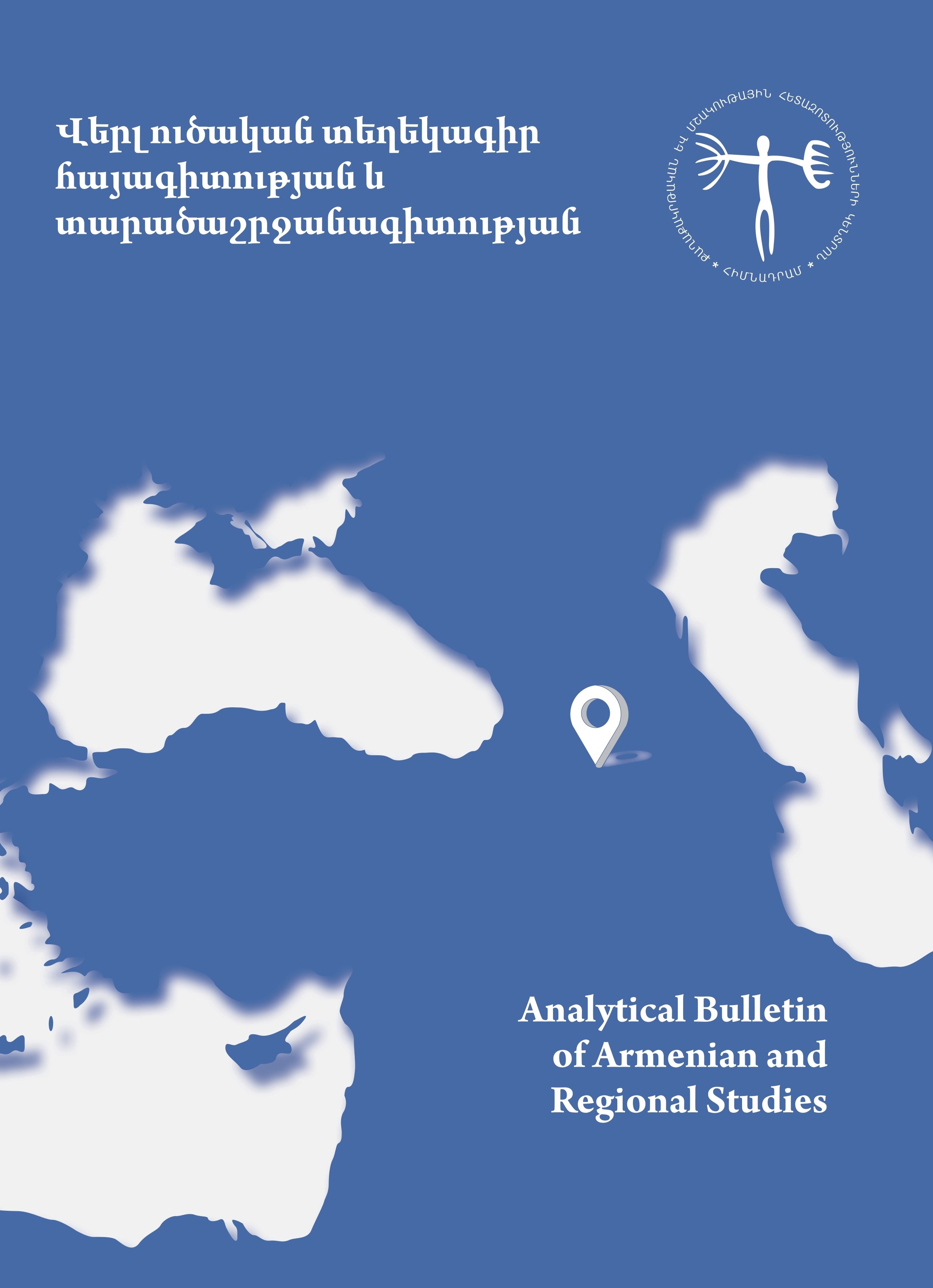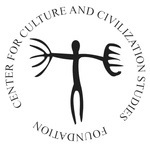Religion as a Marker of Identity for Georgians (1860-1918)
Keywords:
religion, identity marker, identity formation, we, intellectuals, nationalismAbstract
In European countries, the process of self-determination of nations and formation of the main markers of identity began in the 19th century. The quest for answers to either of the questions “Who are ‘we’?” and “Who are ‘they’?” has not lost its relevance in the 21st century. Today’s answers to these questions are closely related to 19th century developments and to the beliefs and thoughts of the intellectuals of that time. Furthermore, the issues discussed by Georgian intellectuals in the second half of the 19th and at the beginning of 20th century remain controversial and still cause some public disputes. Therefore, it is important to track the identity formation process, which the current study is trying to do for the Georgian case.
The paper aims to study the role of religion in the process of identity formation in Georgia from the 1860s to 1918. This is a period when the narrative of Georgian identity was shaped, so the ideas widely discussed among the intellectuals of that period determined the main identity markers and the main borders of the “we” group. Moreover, the identity markers formed in the 19th century still shape current discussions on national issues. Georgia is a multi-ethnic and multi-religious country. Therefore, it is important to know exactly how other religious groups were placed within the scope of the “we” group, and whether or not religion represented an identity marker that drew a strict line between the “we” group and the “others”. What thoughts were common among the thinkers of that period? Were there different opinions on this issue? Regarding religion and identity, what kind of ideas were transmitted to people and in what form?
The main research question is the following: What role did religion play in the process of defining “we” and “others” in Georgia (1860-1918)? A preliminary hypothesis is that religion was an important marker of identity, which determined the boundaries of the “we” group in Georgia from 1860 to 1918. Moreover, even today, in the 21st century, Georgianness is largely associated with the Georgian Orthodox Church and therefore there are certain expectations that a century ago the situation was quite similar and religion represented an important marker of identity. The current analysis is an attempt to check whether or not this is true.
References
Chikovani N., Chkhaidze I., Matsaberidze D., Tsereteli I., Kakitelashvili K., Identity Narratives in Georgia: at the Origins of Multiethnic Georgian Nation (1860-1918). Tbilisi, 2014
Jones S. F., Socialism in Georgian Colors, Harvard University Press, 2005
Suny R. G., The Making of the Georgian Nation, Indiana University Press, Hoover Institution Press, 1988
Anderson B., Imagined Communities: Reflections on the Origin and Spread of Nationalism, London; New York: VERSO, 2006
Gellner E., Nations and Nationalism: New Perspective on the Past, Cornell University Press, 1983
Hroch M., Social Preconditions of National Revival in Europe: A Comparative Analysis of the Social Composition of Patriotic Groups among the Smaller European Nations, Cambridge University Press. 1985
Smith A. D., National Identity, London: Penguin Books, 1991
Kennedy M. D., Suny R. G., Intellectuals and the Articulation of the Nation, The University of Michigan Press, 1999
Gellner E., Nations and Nationalism: New Perspective on the Past, Cornell University Press, 1983, p.7
Ghlonti T.,The Unity of Georgianness // Sakhalkho Purtseli, #279,#315, 1915, in Chikovani N., Chkhaidze I., Matsaberidze D., Tsereteli I., Kakitelashvili K., Identity Narratives in Georgia: at the Origins of Multiethnic Georgian Nation (1860-1918), Tbilisi, 2014, p. 306
Georgian Muslim’s day // Modern Opinion, # 60, 1915 in Chikovani N., Chkhaidze I., Matsaberidze D., Tsereteli I., Kakitelashvili K., Identity Narratives in Georgia: at the Origins of Multiethnic Georgian Nation (1860-1918), Tbilisi, 2014, p. 316
Volski G., Jews case in Georgia // Droeba, #186, 1883, pp. 1-3, in Chikovani N., Chkhaidze I., Matsaberidze D., Tsereteli I., Kakitelashvili K., Identity Narratives in Georgia: at the Origins of Multiethnic Georgian Nation (1860-1918), Tbilisi, 2014, pp. 357-358
Chavchavadze I., Muslim’s Georgia, 1877, in Chemi Rcheuli, Tbilisi: Palitra L, 2012, Vol. 45, p. 3
Georgians and Muslims Congregation // Iveria, #98, 1905.. In Chikovani
N., Chkhaidze I., Matsaberidze D., Tsereteli I., Kakitelashvili K., Identity Narratives in Georgia: at the Origins of Multiethnic Georgian Nation (1860-1918), Tbilisi, 2014, p. 342
Georgians and Armenians // Mshak, #167, 1880, pp. 1-2 In Chikovani N., Chkhaidze I., Matsaberidze D., Tsereteli I., Kakitelashvili K., Identity Narratives in Georgia: at the Origins of Multiethnic Georgian Nation (1860-1918), Tbilisi, 2014, p. 324
Bakhtadze I., Feuilleton // Iveria, #198, 1886, pp. 1-3. In Chikovani N., Chkhaidze I., Matsaberidze D., Tsereteli I., Kakitelashvili K., Identity Narratives in Georgia: at the Origins of Multiethnic Georgian Nation (1860-1918), Tbilisi, 2014, p. 358
Nikoladze N., Jews in Georgia // Droeba, 1871, #32, pp. 2-3 in Chikovani N., Chkhaidze I., Matsaberidze D., Tsereteli I., Kakitelashvili K., Identity Narratives in Georgia: at the Origins of Multiethnic Georgian Nation (1860-1918), Tbilisi, 2014, p. 350
Khizanashvili N., Our Jews” (Cveneburi Jews) (remarks) // Iveria, #141, 1902, p.2 In Chikovani N., Chkhaidze I., Matsaberidze D., Tsereteli I., Kakitelashvili K., Identity Narratives in Georgia: at the Origins of Multiethnic Georgian Nation (1860-1918), Tbilisi, 2014, p. 361
Baazov D., Oni’s Rabbi on Georgian Israeli’s issue // Samshoblo, # 429, 1916, p. 3 in Chikovani N., Chkhaidze I., Matsaberidze D., Tsereteli I., Kakitelashvili K., Identity Narratives in Georgia: at the Origins of Multiethnic Georgian Nation (1860-1918), Tbilisi, 2014, p. 391
Khananashvili J., Forced definition for the attention of the Georgian Israeli // Samshoblo, 1916, (#392 pp. 2-3; #393 pp. 2-3); The Georgian Israeli’s response to “not Georgian” Rabbi // Samshoblo (#410 pp. 2-3; #411 pp. 2-3) in Chikovani N., Chkhaidze I., Matsaberidze D., Tsereteli I., Kakitelashvili K., Identity Narratives in Georgia: at the Origins of Multiethnic Georgian Nation (1860-1918), Tbilisi, 2014, p.364
Khananashvili M., Few things about the Georgian Jews // Sakhalkho Purtseli, #607, 1916, pp. 2-3 in Chikovani N., Chkhaidze I., Matsaberidze D., Tsereteli I., Kakitelashvili K., Identity Narratives in Georgia: at the Origins of Multiethnic Georgian Nation (1860-1918), Tbilisi, 2014, p. 387





